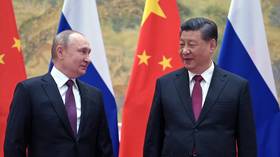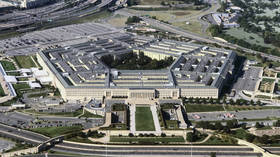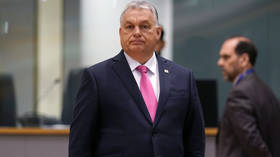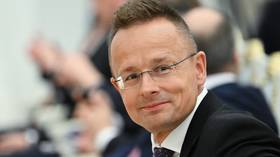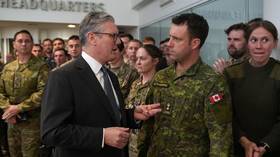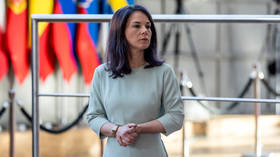China hits out at US over Ukraine

Claims from Western politicians and spy agencies that Russian bombs could start falling on Ukraine at any moment as part of an all-out invasion have dealt a heavy social and economic blow to Kiev, Beijing has claimed.
Speaking at a press conference on Wednesday, Chinese Foreign Ministry spokesman Wang Wenbin weighed in on the standoff on the border between the two Eastern European nations, arguing that Washington has contributed to rapidly rising tensions.
“Over the last few days, the US has been fanning the threat of war, artificially creating a tense atmosphere, which has dealt a serious blow to the economy, social stability and living conditions of the people of Ukraine,” he said.
According to the diplomat, Washington has also increased “the resistance to advancing negotiations and dialogue among the parties concerned.”
Wang’s remarks come amid an impasse between East and West in recent months, with a number of leaders repeatedly warning that Russia could soon order an invasion of Ukraine. Officials in Washington have even gone so far as to claim that Moscow could launch the attack during the Beijing Winter Olympics.
Earlier this week, Pentagon Press Secretary John Kirby announced that the US is becoming increasingly concerned about the “burgeoning relationship between Russia and China” and Beijing’s “tacit support” for Moscow on issues of European security.
The Kremlin has repeatedly insisted that it has no aggressive intentions against Ukraine. On Tuesday, Moscow’s Ministry of Defense announced that its troops had wrapped up their training drills in Belarus near the Ukrainian border, and would begin the process of returning to their permanent bases.
Amid rumors that an incursion into Ukraine is imminent, Moscow has sought to obtain security guarantees that would limit both NATO’s expansion closer to its borders and its presence in Eastern Europe.
Following a meeting between Russian President Vladimir Putin and his Chinese counterpart Xi Jinping in Beijing ahead of the opening of the Winter Olympic Games earlier this month, the Kremlin published a joint declaration in which both sides called for an end to the US-led military bloc’s expansion. “The parties oppose the further expansion of NATO and call for the North Atlantic Alliance to refrain from ideological approaches from the time of the Cold War,” the statement read.
The two nations have emphasized the importance of their partnership in an array of spheres, such as their booming trade, energy, economics, and defense. According to Kremlin aide Yuri Ushakov, Xi is fully on board with Moscow’s pursuit of attaining security assurances from the West, noting in December that the Chinese leader is “naturally well aware of and understands the main issue: the concerns Russia has on its western borders.”
However, several analysts have speculated that this seemingly budding collaboration between Moscow and Beijing may not be as developed when compared to blocs such as NATO.
